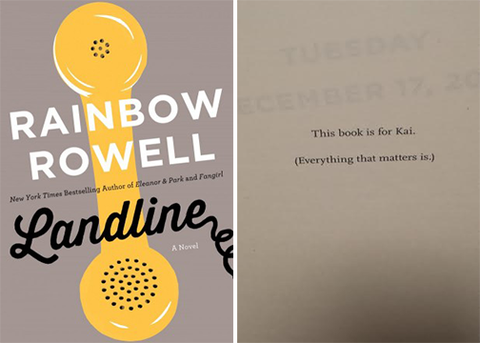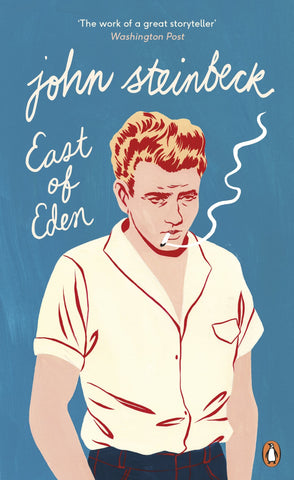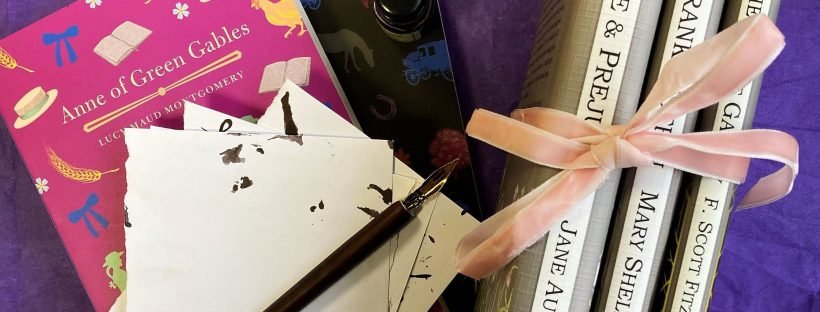For Emily by Katherine Slee is a warm and uplifting novel about Emily, who’s grandmother, a famous children’s author named Catriona Robinson, has died, and left her a trail of clues to a secret manuscript via her book dedications. If you enjoyed The Keeper of Lost Things by Ruth Hogan, you would really like this one!

The premise of the story had me thinking about the significance of those interesting little dedications we often find at the beginning of a book. Unlike the acknowledgements at the end, which can be long and include everyone from the editors and publishers to the family dog, the ideal dedication is snappy, succinct and offers something profound for the reader to ponder as they immerse themselves in the content of the novel.
It is arguably the ultimate honour to bestow upon someone.
But what is behind the impulse to write a dedication in the first place?
Found after the title page and before the first chapter, a dedication creates a physical space for the author to render themselves visible to the reader. It is a way of saying: ‘This book is my creation and here is my motivation’.
Some messages are cryptic, some heartfelt, others are overtly political, funny, or playful. They can contribute to the mythology of the writer or encapsulate their literary earnestness.
Some authors decide to do away with them completely and we are left to wonder about their lives-or visit their Wikipedia page.
There is something to admire about a brief dedication to a partner or close family member, like Rainbow Rowell’s ‘For Kai, who’s better than fiction’ in her book, Attachments. Someone she has repeatedly shown her love for in her dedications.

The queen of short dedications, however, is Toni Morrison, who foregoes a ‘For’ or a ‘To’ and simply writes the name of a person, such as ‘Daddy’ in ‘Song of Solomon’ or ‘Lois’ in ‘Paradise’. Simple, yet effective. Or as she did in Beloved, to sum up the impact of slavery she simply put

Other book dedications are slightly meta- parodying in nature, such as P.G. Wodehouse addressing his editor directly with a dedication that acknowledges his utter dislike of dedications (‘To hell with them about sums up my attitude.’)
In Lemony Snicket’s Series of Unfortunate Events. Snicket dedicates each book to his fictional deceased love, Beatrice, which become progressively funnier and more twisted as the series continues. In The Miserable Mill he writes:

‘For Beatrice-
My love flew like a butterfly
Until death swooped down like a bat
As the poet Emma Montana McElroy said:
“That’s the end of that.”
Some dedications acknowledge that the creation of a book is a collective team effort. For a writer to create, there may be an element of sacrifice on the part of family members, colleagues, and friends. But does a dedication suffice?
My favourite dedication that I have stumbled across is John Steinbeck’s quite lengthy dedication to his editor and best friend Pascal (Pat) Covici at the beginning of his masterpiece, East of Eden. It reads:

“Dear Pat,
You came upon me carving some kind of little figure out of wood and you said, ‘Why don’t you make something for me?’
I asked you what you wanted, and you said, ‘A box.’
‘What for?’
‘To put things in.’
‘What kind of things?’
‘Whatever you have,’ you said.
Well, here’s your box. Nearly everything I have is in it, and it is not full. Pain and excitement are in it, and feeling good or bad and evil thoughts and good thoughts – the pleasure of design and some despair and the indescribable joy of creation.
And on top of these are all the gratitude and love I have for you.
And still the box is not full.
JOHN”
It would be interesting to know if most readers pay attention to the dedication or if they simply pass it by, the way you would the extraneous publication details and forwards. They certainly can offer something extra to the reading of the text and the perception of the author to their audience. It is a faint reference to intimacy, like a hand on a shoulder or a shrug of acknowledgement. The book did not appear miraculously. There is no perfect manuscript that is birthed without effort or struggle. Perhaps a word or two from the author seeks to correct any misgivings or fallacies on the behalf of the reader. Whatever the motivation, I hope you have a peek inside your own books from now on and see if the personal dedications further nourish your reading of the book.
Do you have a favourite book dedication?
If you wrote a novel, who would you dedicate a book to?
Ps. We couldn’t have a piece about dedications without including this memorable “Heroes of Olympus” dedication by Rick Riordan
























